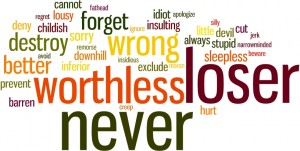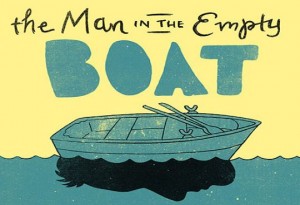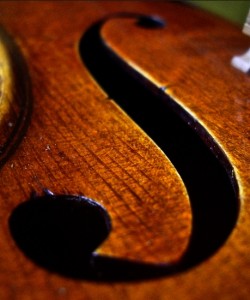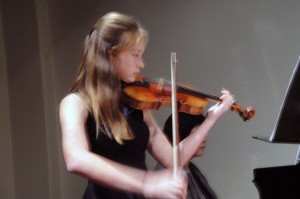The power of words
My wife Judy had been married before we got together. That prior union was tumultuous and short, and the only thing she took away from it was the memory of some hurtful words her first husband had said during one of their arguments. He’d predicted that she would make a lousy mother.
I don’t know what prompted him to say that. I knew her during the time they were married, and was aware of nothing that might have supported his prediction. Maybe he was simply trying to hurt her.
Because I knew him as well, I doubt he meant to inflict lasting harm. He was no more malicious than anyone else, and at one time or another probably everyone utters mean, divisive or negative words.
That’s what I want to write about, because despite the old epigram about sticks and stones, words can indeed hurt.
A disabled child
A year or so after their divorce was final, Judy and I married. And then, some years after that, we had our only child, a boy we named Joseph.
Looking back, I realize that Judy had not been eager to become a mother. We’d seldom discussed the notion of having babies. We concentrated on our careers, on fixing up our house, and on pasttimes such as community theatre and square dancing. Then one day, inspired by the sight of happy families playing with their kids in the park, I suggested that we go ahead and see what parenthood would be like. An expression of panic crossed Judy’s face; but when she saw that I was serious, she nervously agreed that it was the right thing to do. Within an hour, we were both completely sold on the idea of bringing a new life into the world.
Long before we had any physical evidence that he was coming, both of us loved our child and couldn’t wait to see him.
Joseph entered this world with problems. He couldn’t keep his food down. He cried almost constantly. He grew older but did not achieve any of the usual developmental milestones, such as crawling. Despite multiple evaluations and tests, the doctors did not understand what was wrong. Therefore, they also did not know what could be done for him.
My response in that frightening first year and a half was to continue taking Joseph to his appointments, ever hopeful that the doctors would eventually identify the cause of his distress and send us to the right specialist. I trusted that somebody, somewhere, would have the expertise to get our little guy fixed up.
Judy lost patience with that. She believed, correctly, that time was of the essence, and that the longer Joseph waited for help, the less effective any help would be. Since mainstream medical professionals were doing nothing for him, she began exploring options with alternative providers. At first, I objected. I believed anyone not in the mainstream must have been excluded for good reason. But my misgivings were no match for her determination.
One line of inquiry led to another, and before long Joseph was the patient of a kindly old osteopathic doctor who specialized in the arcane science of cranial therapy. This treatment finally put an end to Joseph’s irritability and frequent vomiting. In turn, the outcome put an end to my doubts about Judy’s course of action. Thus encouraged, we found our way into an arduous and controversial home therapy program that offered hope of overcoming his developmental delays.
Years passed, and Joseph achieved some wonderful milestones. The most obvious was finally learning to walk independently. But he never attained the total wellness that we had pursued so earnestly. For reasons that are still unknown, he never acquired the ability to talk.
A quest for answers
One bit of wisdom the doctors had always stressed was that parents of kids who have developmental problems should not blame themselves.
Even so, Judy and I could not avoid examining our backgrounds and our selves for an explanation of our son’s condition. We found little. Still, in weak moments Judy confessed to me that she worried about her first husband’s comment. She feared he had perceived something that we did not. She dearly wanted to try again, to have another baby, but was terrified that there might be something about her that would afflict any child born to her.
I can only guess at the emotional depths to which this unresolved question drove my wife.
However, if any blame were to be assigned, the person most obviously free of it had to be our son. He’d done nothing to bring about his misfortune. Therefore, even after exhausting all the good ideas for helping him, we still felt we had a duty to keep trying. There would be no further children in our family, but Judy and I meant to do anything possible that might enable Joseph to move another step or two along the way toward independence.
For example, just as Judy had led the charge in finding alternative healthcare providers, she also began exhorting me to recognize the importance of speaking words in support of desired outcomes. Any time I became discouraged, she cited Scripture, urging me to “call things that be not as though they are.”
The words we speak, she said, have enormous power to hurt or to heal, because our subconscious mind hears and acts on them. The best use of our words, she insisted, is to give encouragement and comfort, and to remind the hearer that things can be better.
We’d spent a great deal of time over the years discussing what was wrong; but now, she decided, we needed to guard what we said. We needed to focus on what was right. Joseph desperately needed to hear it, and so did we.
Perhaps it was too late by then. Perhaps constructive language could not reverse a process that by then was already well under way. Perhaps understanding these things intellectually did not cancel out what occurred on an emotional level. At any rate, instead of seeing improvement in Joseph, Judy herself fell ill, and two years later she died.
Our little guy was nine years old when he lost her.
As for the ultimate cause of his mysterious condition, it’s possible to look for explanations where they don’t exist. One doctor had told us that, whatever had gone awry with Joseph’s development, it was something that “just happened.” As for our response, I do think that our love for him provided ample motivation for the choices we made. There’s no need to attribute our efforts to help him to a sense of guilt. On the other hand, I have no trouble believing that Judy was also motivated in part by a desire to prove, once and for all, that she was a good mother. Even if she was the only person needing that proof.
If that was the case, the effort cost her everything.
Sometimes we can only speculate. I don’t know why Judy died at an early age. But it would be a good policy for all of us to consider the possible consequences of our words before we speak them. Lives may be at stake.
This article was originally published by Utterly Frank.



